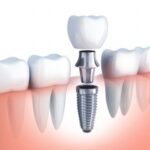A root canal treatment is one of the most effective dental procedures to save a severely damaged or infected tooth. While the procedure itself relieves pain and restores oral health, your aftercare plays a vital role in the healing process. To ensure a smooth recovery and long-lasting results, it’s important to know what to avoid after root canal treatment.
Why Post-Treatment Care Matters
After a root canal treatment in islamabad, your tooth and surrounding tissues are still healing. Although the infection is removed, the treated tooth may remain sensitive for a few days. By following your dentist’s instructions and avoiding certain activities, you can:
-
Prevent complications
-
Reduce pain and discomfort
-
Speed up healing
-
Protect your tooth until a permanent crown is placed
What to Avoid After Root Canal Treatment
1. Avoid Eating Until Numbness Wears Off
After treatment, your mouth may remain numb for a few hours due to anesthesia. Eating during this time can cause accidental biting of the cheeks, lips, or tongue.
2. Avoid Chewing on the Treated Side
Your tooth is still fragile until the permanent crown or filling is placed. Avoid chewing hard or sticky foods on the treated side to prevent fractures or damage.
Avoid Hard, Crunchy, and Sticky Foods
-
Hard foods like nuts, chips, or ice can crack the tooth.
-
Sticky foods like gum or caramel can pull at the temporary filling.
Opt for soft foods like yogurt, soups, smoothies, and mashed potatoes during the healing phase.
Avoid Smoking and Alcohol
Both smoking and alcohol slow down healing and increase the risk of infection. Alcohol can also interfere with prescribed painkillers or antibiotics.
. Avoid Skipping Medications
Pain relievers and antibiotics prescribed by your dentist are crucial for recovery. Skipping doses may prolong discomfort or increase infection risk.
Avoid Poor Oral Hygiene
While you should brush and floss carefully, neglecting oral hygiene can cause bacteria to re-enter the treated tooth. However, be gentle around the treated area to avoid irritation.
Avoid Excessive Pressure on the Tooth
Grinding or clenching your teeth can damage the treated tooth. If you suffer from bruxism (teeth grinding), ask your dentist about using a nightguard.
When to Contact Your Dentist
It’s normal to experience mild sensitivity for a few days, but call your dentist immediately if you notice:
-
Severe or increasing pain
-
Swelling around the gums or face
-
Allergic reactions to medications
-
The temporary filling falls out
Final Thoughts
Knowing what to avoid after root canal treatment helps ensure that your tooth heals properly and remains strong for years to come. Stick to soft foods, maintain good oral hygiene, and follow your dentist’s advice closely. Once your permanent crown is placed, your tooth will function like normal again—allowing you to enjoy a healthy, confident smile

